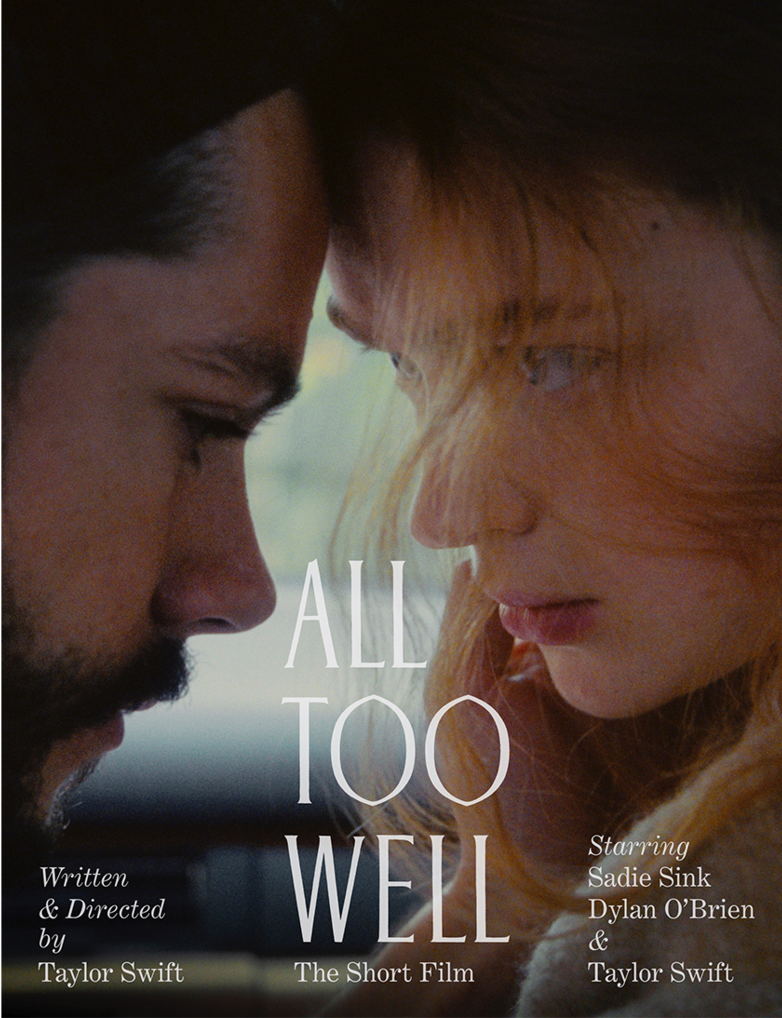Whether you’re a Swiftie or an innocent bystander whose TikTok For You page has been hijacked by Swiftok, you might have stumbled across the cinematic masterpiece: All Too Well: The Short Film. The film acts as the music video for the 10-minute version of the marquee song from Red (Taylor’s Version). Swift wrote the song about her relationship with ex-boyfriend Jake Gyllenhaal and many fans across the country related to its sincere and gut-wrenching lyrics, but this did not spare the short film from criticism.

Taylor Swift; courtesy Universal Pictures
While the singer is re-releasing albums to create her music the way she intended, Swift was accused of holding grudges and parodied for being vindictive and petty.
The short film puts those critics to shame by taking the audience on a visceral journey of a toxic relationship through the eyes of the young woman subjected to emotional trauma. Audiences are able to visualize the intricate imagery embedded in the lyrics of the song. Those who criticize Swift for holding a grudge are able to see how deeply painful the act of remembering this period of her life must be, and those who accuse her of fabricating details are reminded that one never forgets trauma inflicted upon them.
The film has sparked a conversation about age gaps in relationships and their impact on an individual. Swift, herself has been criticized for dating Conor Kennedy, who was four years younger, and Taylor Lautner, who was three years younger. However, the bigger criticism was the fact that Swift was an adult dating a teenaged Lautner. It is also worthwhile to note that comparing these relationships to the one with Gyllenhaal is unfair and inherently sexist, especially since their relationship had a nine-year age gap.
Power inequality in a relationship is often experienced when one partner has more power over the other’s emotions, financial security, or life in some severe cases. The inherent toxicity in Swift and Gyllenhaal’s relationship stemmed not only from their age gap but the fact that Swift was in her early twenties while Gyllenhaal was nearly in his thirties. The profound life changes between those decades not only shape you as a person but alter your perspective and outlook on life. Furthermore, there is a profound difference in confidence and comfort with yourself between the two ages. This means the older partner always has the upper hand in contrast to the volatile and emotional younger partner in the relationship.
A scene in the middle of the film highlights this imbalance in the relationship as the younger actress (played by Sadie Sink) fumes about how her older boyfriend failed to pay attention to her during a dinner with his friends. He dismisses her concerns and anger, calls her selfish, and gaslights her emotions. While the fight is resolved after he apologizes, a particularly telling moment is when the young girl says she feels embarrassed and her boyfriend says nothing. His refusal to admit he was wrong and that he has a responsibility to not make her feel isolated, shows he truly is an emotional manipulator whether it is unconscious or not.
The film does a fair job to portray him not as a villain, but rather as a damaged man who is unable to recognize his problematic behavior due to his own trauma. Despite criticism, the film captured the truly flawed nature of human beings and is a warning to be wary of relationships with age gaps at different stages of their life. It is not different life aspirations as the final nail in the coffin of these relationships, but rather the older partner’s ability to manipulate the younger one’s emotion because they have experienced similar emotions and feelings in the past.































